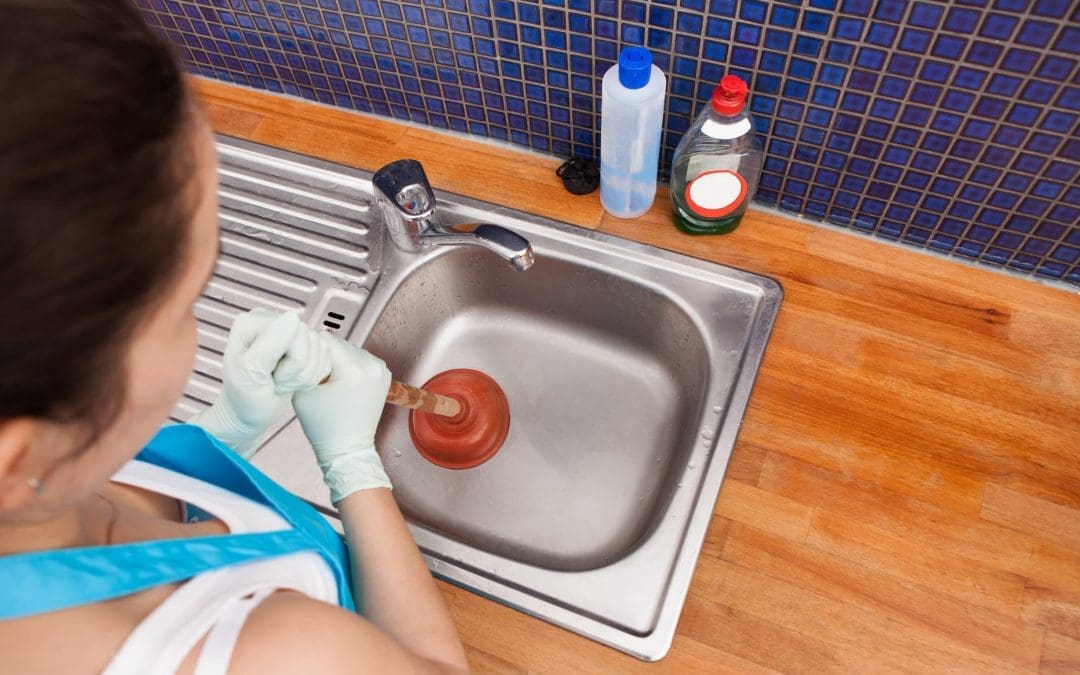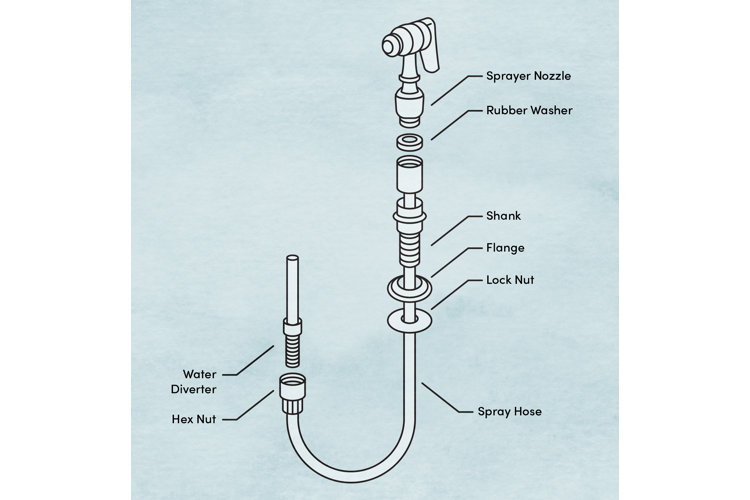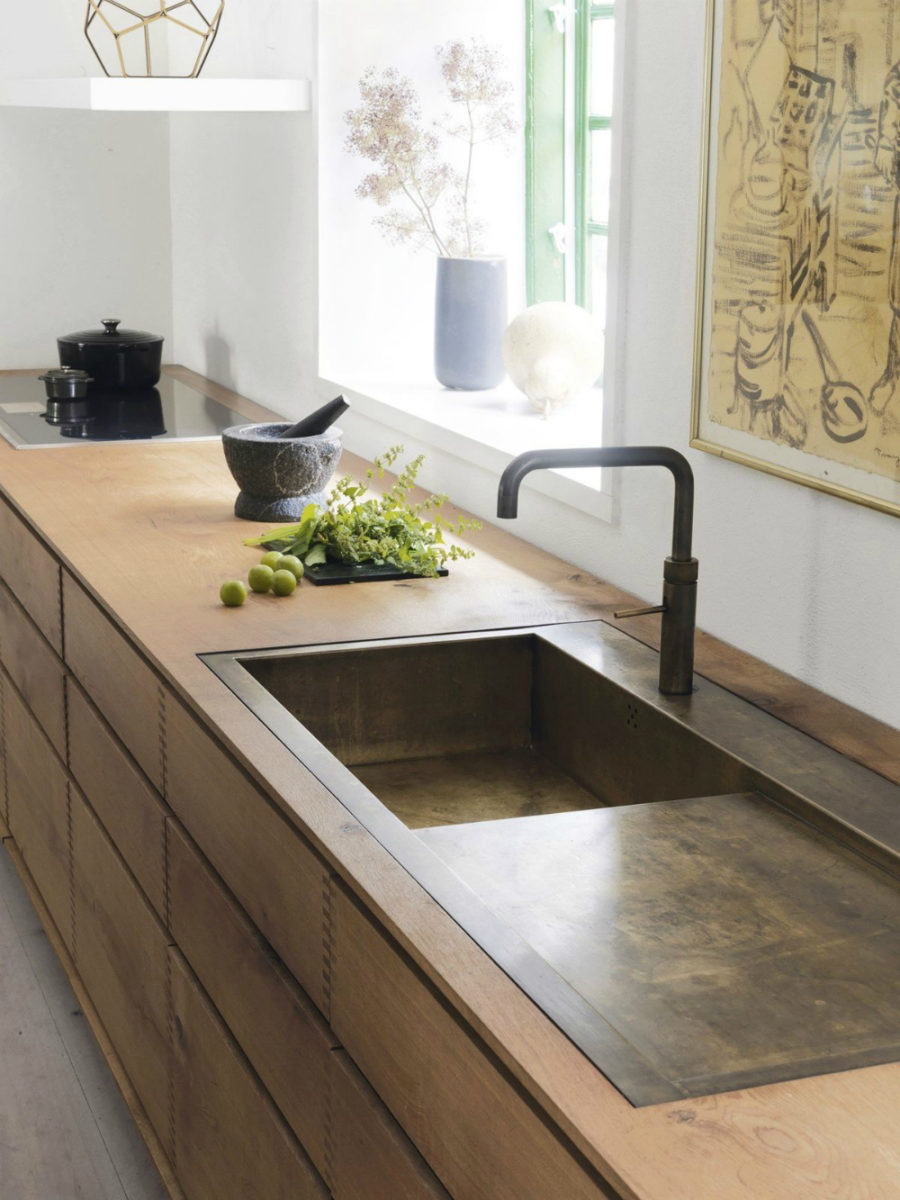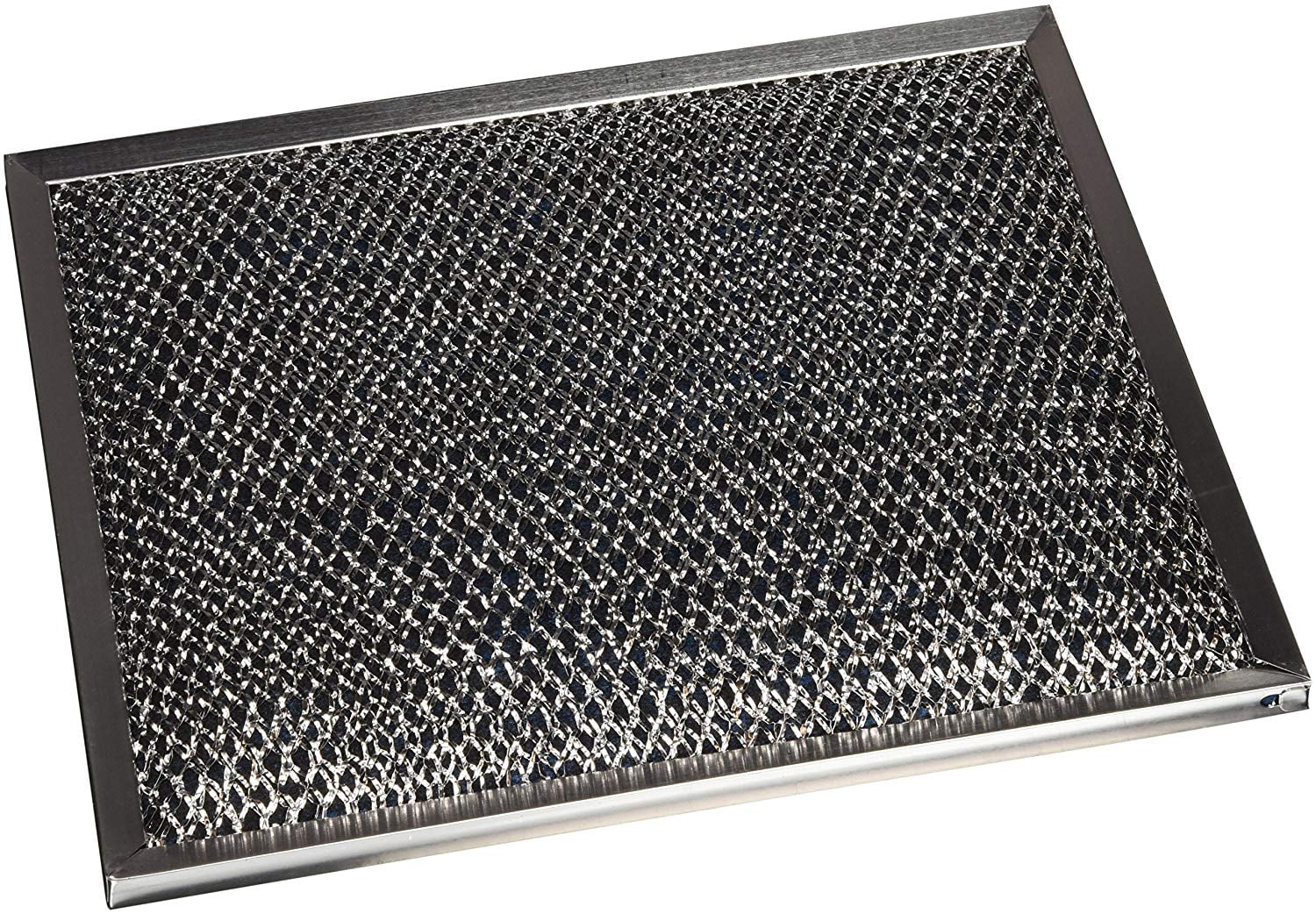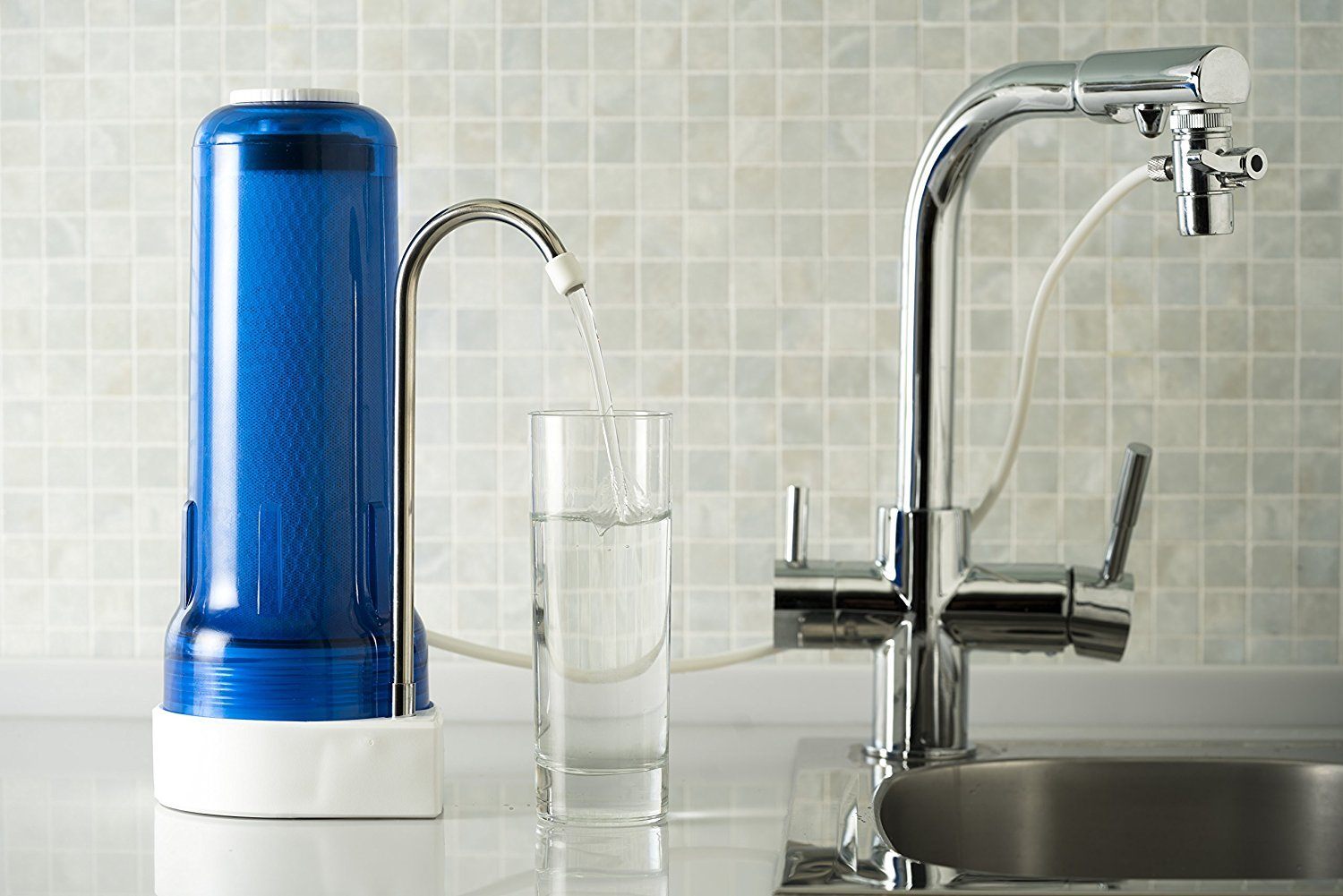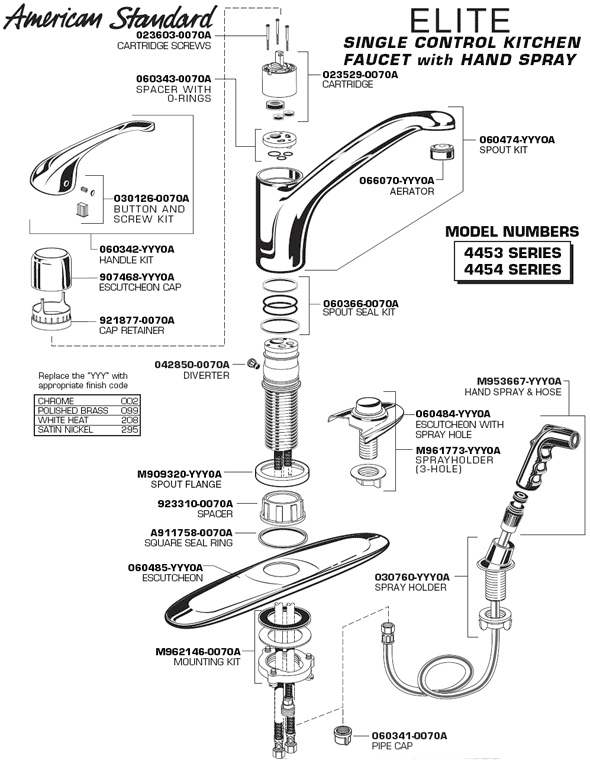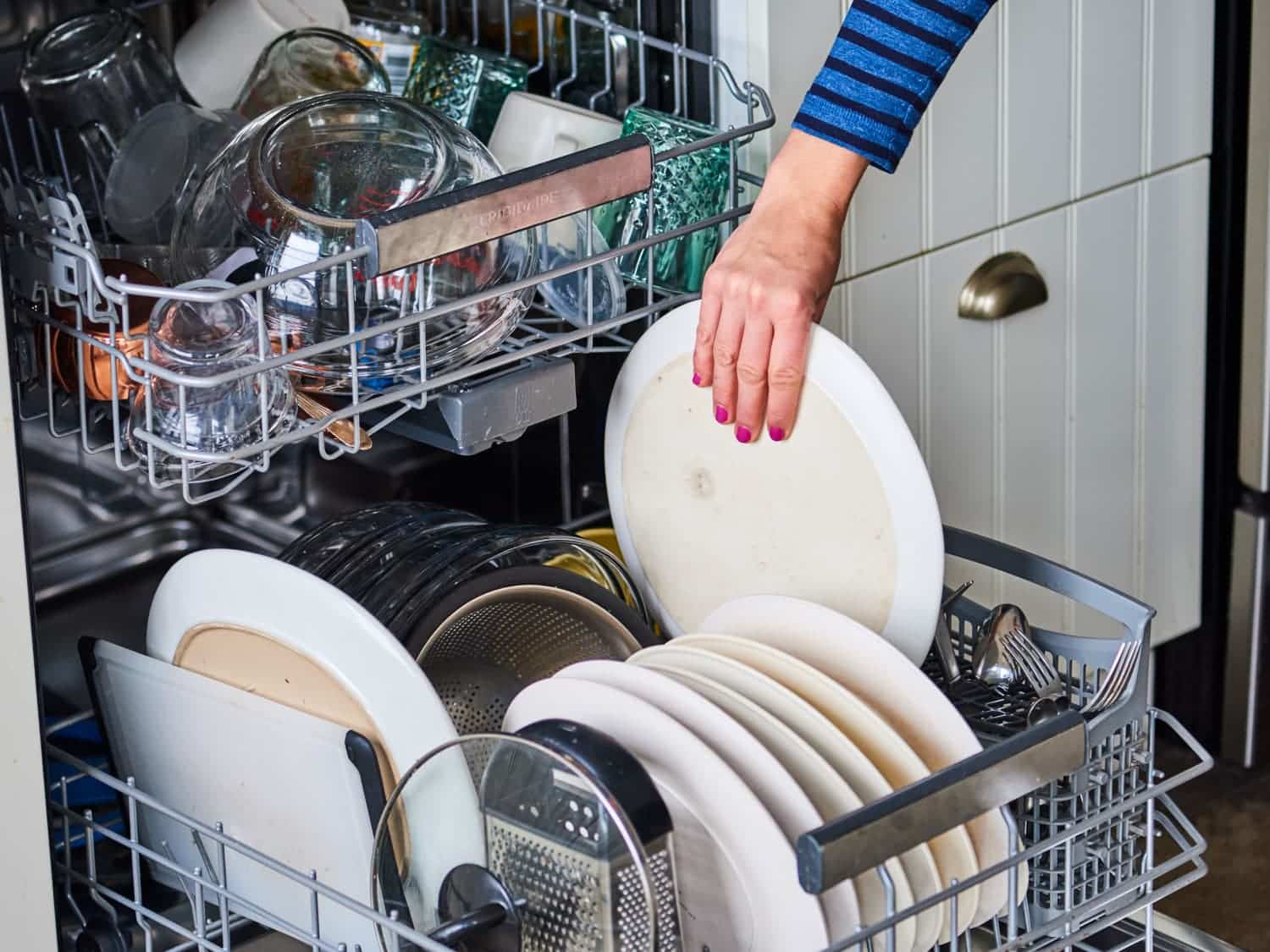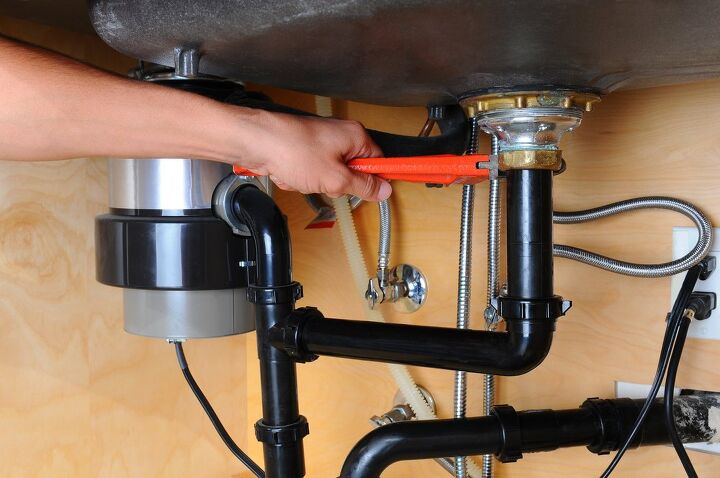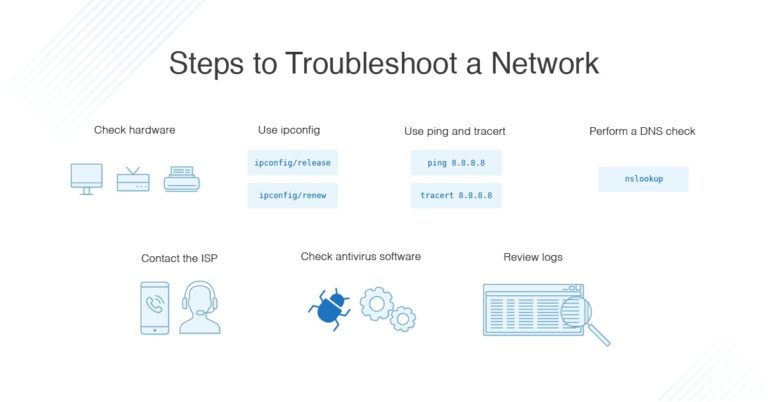1. How to Add a Water Filter to Your Kitchen Sink
Are you tired of constantly buying expensive bottled water or dealing with the inconvenience of a bulky water filter pitcher? Adding a filter to your kitchen sink can be a game-changer when it comes to clean and safe drinking water. Not only will it save you money in the long run, but it also reduces plastic waste and is more convenient for everyday use. Follow our step-by-step guide to learn how to easily add a water filter to your kitchen sink.
2. Installing a Filter on Your Kitchen Sink
The first step in adding a filter to your kitchen sink is to determine what type of filter you want to install. There are various options available, including under-sink filters, faucet-mounted filters, and inline filters. Faucet-mounted filters are the easiest to install and do not require any modifications to your plumbing. However, they may not be as effective as under-sink or inline filters. Whichever type you choose, make sure to read the manufacturer's instructions carefully before installation.
3. DIY Kitchen Sink Filter Installation
If you're a handy person and want to save some money, you can opt for a DIY installation instead of hiring a professional plumber. The process may vary slightly depending on the type of filter you choose, but here are the general steps for installing an under-sink filter:
Step 1: Turn off the water supply to your kitchen sink. You can do this by shutting off the main water valve or turning off the shut-off valves under the sink.
Step 2: Disconnect the water supply line from the shut-off valve or the faucet. You may need a wrench to loosen the fittings.
Step 3: Install the filter unit under your sink. Make sure to follow the manufacturer's instructions for proper placement and attachment.
Step 4: Connect the water supply line to the filter. Again, follow the manufacturer's instructions for proper attachment.
Step 5: Turn the water supply back on and check for any leaks. If everything looks good, you're all set!
4. Choosing the Right Filter for Your Kitchen Sink
With so many options available, it can be overwhelming to choose the right filter for your kitchen sink. Here are some factors to consider when making your decision:
Water Contaminants: Different filters are designed to remove specific contaminants from your water. Consider getting your water tested to determine what impurities are present and choose a filter that can effectively remove them.
Filter Lifespan: Some filters need to be replaced more frequently than others. Consider the cost and frequency of replacement when choosing a filter.
Filter Type: As mentioned earlier, there are various types of filters available. Consider your needs and preferences when deciding which type is best for you.
5. Benefits of Adding a Filter to Your Kitchen Sink
Aside from providing clean and safe drinking water, adding a filter to your kitchen sink has many other benefits, including:
Convenience: With a filter directly attached to your sink, you no longer have to refill a water filter pitcher or buy bottled water.
Cost Savings: While the initial cost of a filter may seem high, it will save you money in the long run by eliminating the need to purchase bottled water.
Reduced Plastic Waste: By using a filter, you can significantly reduce the amount of plastic waste from bottled water.
6. Step-by-Step Guide to Adding a Filter to Your Kitchen Sink
Now that you have a better understanding of the benefits of adding a filter to your kitchen sink, here is a step-by-step guide to help you through the process:
Step 1: Choose the type of filter you want to install.
Step 2: Purchase the necessary materials and tools.
Step 3: Turn off the water supply to your kitchen sink.
Step 4: Install the filter unit under your sink.
Step 5: Connect the water supply line to the filter.
Step 6: Turn the water supply back on and check for any leaks.
Step 7: Replace the filter as needed.
7. Top Filters for Kitchen Sinks
With so many options on the market, it can be challenging to determine which filter is the best for your kitchen sink. Here are our top picks:
1. APEC Water Systems ROES-50 Reverse Osmosis Drinking Water Filter System
2. Culligan FM-25 Faucet-Mount Advanced Water Filtration System
3. PUR FM-3700 Advanced Faucet Water Filter
4. Brita Tap Water Filter System
5. Frizzlife Under Sink Water Filter System
8. How to Maintain Your Kitchen Sink Filter
Regular maintenance is crucial to keep your kitchen sink filter working effectively. Here are some tips to help you maintain your filter:
Replace the Filter: Make sure to replace the filter as recommended by the manufacturer to ensure optimal performance.
Clean the Filter Housing: Over time, debris and sediment can build up in the filter housing. Make sure to clean it periodically to prevent clogging and reduce the risk of bacterial growth.
Check for Leaks: Regularly check for any leaks and address them immediately to prevent damage to your filter and plumbing.
9. Troubleshooting Common Issues with Kitchen Sink Filters
Like any appliance, kitchen sink filters may encounter some problems from time to time. Here are some common issues and how to troubleshoot them:
Low Water Pressure: This could be due to a clogged filter or air trapped in the system. Try cleaning or replacing the filter and bleeding the air out of the system to fix this issue.
Strange Tasting Water: If your water starts to taste unusual, it may be a sign that your filter needs to be replaced.
Leaks: Leaks can occur due to loose connections or damaged parts. Check all connections and replace any damaged parts to fix leaks.
10. Upgrading Your Kitchen Sink with a Filter System
If you currently have a basic faucet-mounted filter and are looking to upgrade, consider installing an under-sink filter system. This type of filter provides better filtration and can be more convenient and aesthetically pleasing.
Adding a filter to your kitchen sink is a simple and effective way to ensure clean and safe drinking water for you and your family. With the right filter and proper maintenance, you can enjoy the benefits of filtered water without the hassle and expense of bottled water.
Add Filter to Kitchen Sink: A Simple Solution for a Clean and Healthy Kitchen

The Importance of a Kitchen Sink Filter
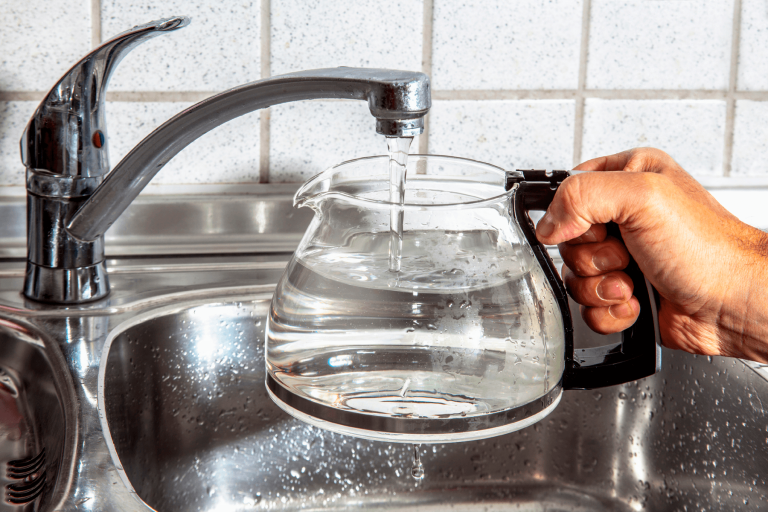 When it comes to creating a functional and attractive kitchen, the sink is often the centerpiece of the design. It's where we wash our dishes, prep our food, and even fill up our water bottles. But, have you ever stopped to think about the quality of the water that comes out of your kitchen sink? Most likely, it's not as clean as you may think.
Tap water can contain a variety of impurities, such as chlorine, lead, and bacteria. These contaminants not only affect the taste and smell of your water, but they can also be harmful to your health. That's why it's crucial to have a filter in your kitchen sink to ensure that the water you use for cooking and drinking is clean and safe.
Adding a filter to your kitchen sink
is a simple and effective solution to improve the overall quality of your kitchen. Not only will it provide you with healthier water, but it can also extend the lifespan of your plumbing fixtures and appliances. Let's take a closer look at the benefits of installing a kitchen sink filter.
When it comes to creating a functional and attractive kitchen, the sink is often the centerpiece of the design. It's where we wash our dishes, prep our food, and even fill up our water bottles. But, have you ever stopped to think about the quality of the water that comes out of your kitchen sink? Most likely, it's not as clean as you may think.
Tap water can contain a variety of impurities, such as chlorine, lead, and bacteria. These contaminants not only affect the taste and smell of your water, but they can also be harmful to your health. That's why it's crucial to have a filter in your kitchen sink to ensure that the water you use for cooking and drinking is clean and safe.
Adding a filter to your kitchen sink
is a simple and effective solution to improve the overall quality of your kitchen. Not only will it provide you with healthier water, but it can also extend the lifespan of your plumbing fixtures and appliances. Let's take a closer look at the benefits of installing a kitchen sink filter.
The Benefits of Installing a Kitchen Sink Filter
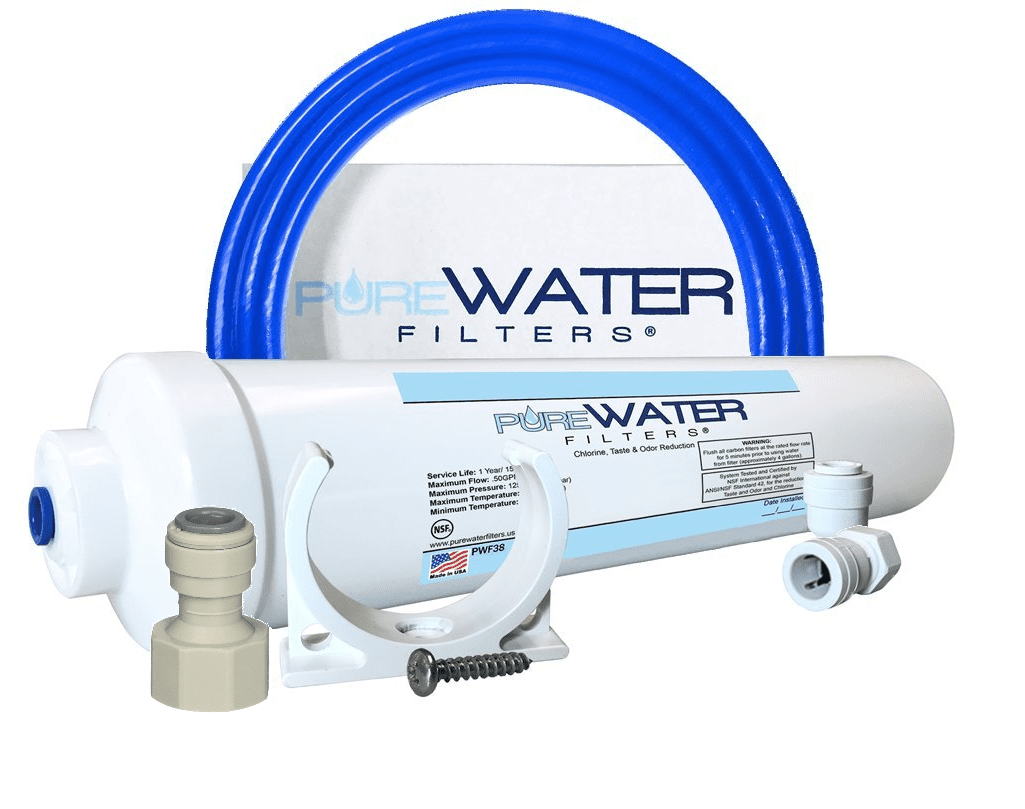 1. Removes Harmful Contaminants
As mentioned earlier, tap water can contain a variety of impurities that can have a negative impact on your health. A kitchen sink filter can effectively remove these contaminants, providing you with clean and safe water for all your cooking and drinking needs.
2. Improves Taste and Odor
If you've ever taken a sip of tap water and immediately regretted it because of its unpleasant taste and odor, then a kitchen sink filter is the solution for you. By removing impurities and chemicals, a filter can greatly improve the taste and smell of your water, making it more enjoyable to drink.
3. Protects Your Plumbing Fixtures and Appliances
Contaminants in tap water can cause buildup and corrosion in your plumbing fixtures and appliances, leading to costly repairs or replacements. A kitchen sink filter can prevent this damage, saving you time and money in the long run.
1. Removes Harmful Contaminants
As mentioned earlier, tap water can contain a variety of impurities that can have a negative impact on your health. A kitchen sink filter can effectively remove these contaminants, providing you with clean and safe water for all your cooking and drinking needs.
2. Improves Taste and Odor
If you've ever taken a sip of tap water and immediately regretted it because of its unpleasant taste and odor, then a kitchen sink filter is the solution for you. By removing impurities and chemicals, a filter can greatly improve the taste and smell of your water, making it more enjoyable to drink.
3. Protects Your Plumbing Fixtures and Appliances
Contaminants in tap water can cause buildup and corrosion in your plumbing fixtures and appliances, leading to costly repairs or replacements. A kitchen sink filter can prevent this damage, saving you time and money in the long run.
The Simple Solution: Adding a Filter to Your Kitchen Sink
 Now that you understand the benefits of having a kitchen sink filter, it's time to take action. Adding a filter to your kitchen sink is a simple and affordable solution that can make a significant impact on the overall cleanliness and health of your kitchen.
There are various types of filters available, including faucet-mounted, under-sink, and countertop filters. It's essential to
choose a filter that suits your needs and budget
and to regularly replace the filter cartridges to ensure optimal performance.
In conclusion, a kitchen sink filter is a must-have addition to any modern and healthy kitchen. Not only does it provide you with cleaner and safer water, but it also has various benefits for your plumbing fixtures and appliances. So, make the smart choice and add a filter to your kitchen sink today. Your body and your wallet will thank you.
HTML Code:
Now that you understand the benefits of having a kitchen sink filter, it's time to take action. Adding a filter to your kitchen sink is a simple and affordable solution that can make a significant impact on the overall cleanliness and health of your kitchen.
There are various types of filters available, including faucet-mounted, under-sink, and countertop filters. It's essential to
choose a filter that suits your needs and budget
and to regularly replace the filter cartridges to ensure optimal performance.
In conclusion, a kitchen sink filter is a must-have addition to any modern and healthy kitchen. Not only does it provide you with cleaner and safer water, but it also has various benefits for your plumbing fixtures and appliances. So, make the smart choice and add a filter to your kitchen sink today. Your body and your wallet will thank you.
HTML Code:
Add Filter to Kitchen Sink: A Simple Solution for a Clean and Healthy Kitchen

The Importance of a Kitchen Sink Filter

When it comes to creating a functional and attractive kitchen, the sink is often the centerpiece of the design. It's where we wash our dishes, prep our food, and even fill up our water bottles. But, have you ever stopped to think about the quality of the water that comes out of your kitchen sink? Most likely, it's not as clean as you may think.
Tap water can contain a variety of impurities, such as chlorine, lead, and bacteria. These contaminants not only affect the taste and smell of your water, but they can also be harmful to your health. That's why it's crucial to have a filter in your kitchen sink to ensure that the water you use for cooking and drinking is clean and safe.
The Benefits of Installing a Kitchen Sink Filter

1. Removes Harmful Contaminants
As mentioned earlier, tap water can contain a variety of impurities that can have a negative impact on your health. A kitchen sink filter can effectively remove these contaminants, providing you with clean and safe water for all your cooking and drinking needs.
2. Improves Taste and Odor
If you've ever taken a sip of tap water and immediately regretted it because of its unpleasant taste and odor, then a kitchen sink filter is the solution for you. By removing impurities and chemicals, a filter can



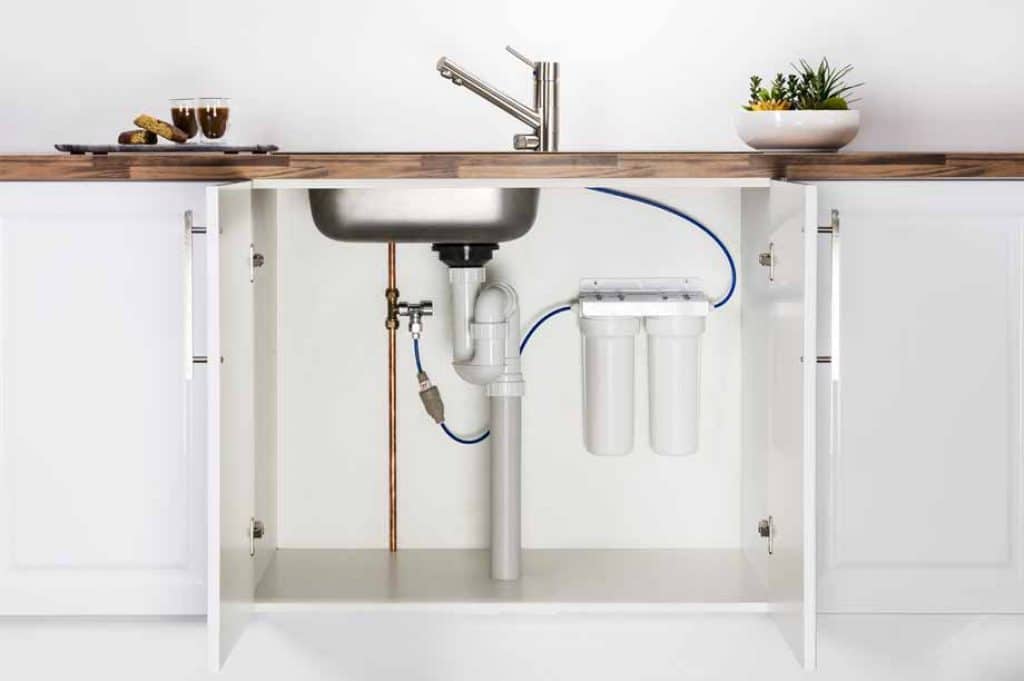

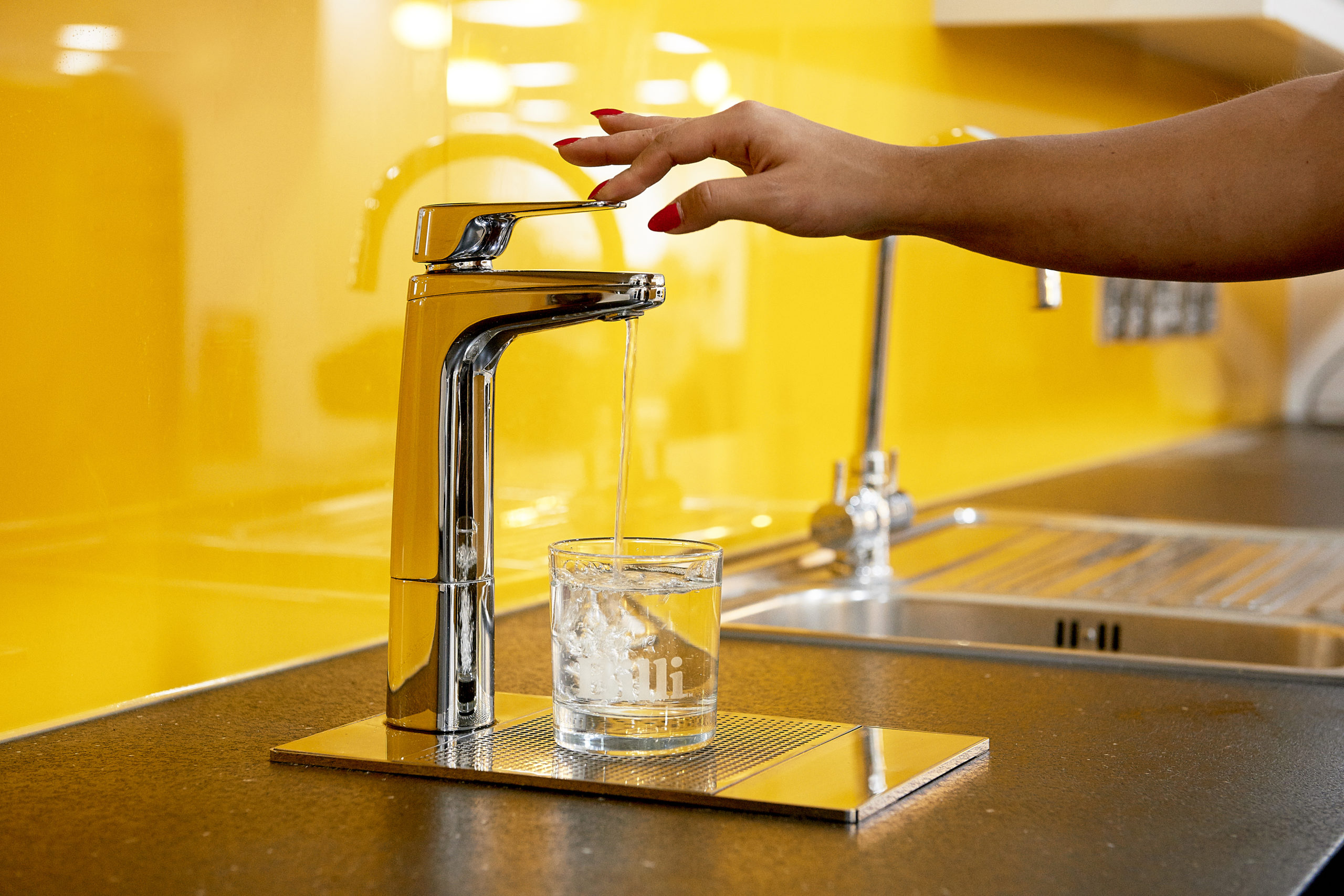


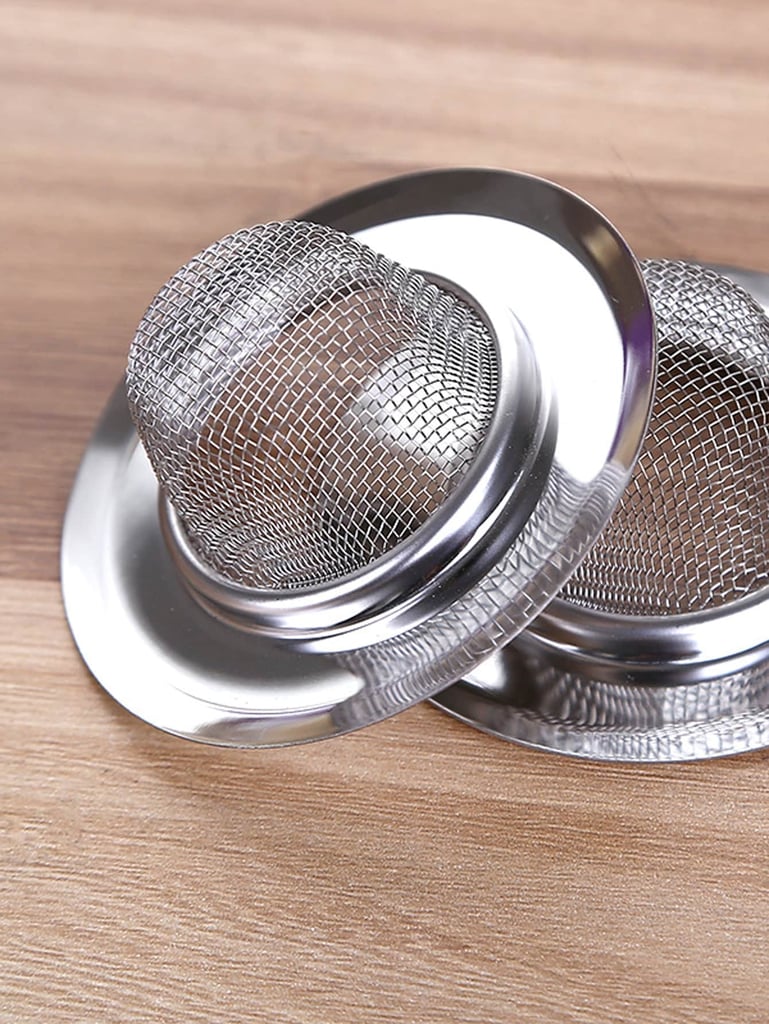







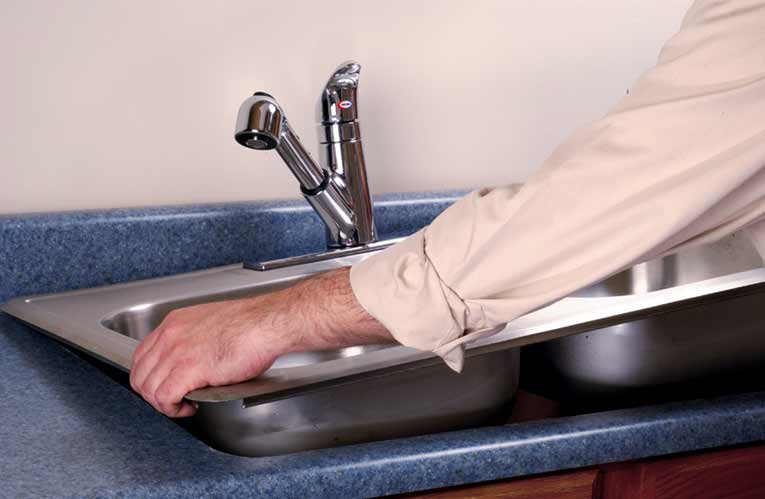











:max_bytes(150000):strip_icc()/Basic-kitchen-sink-types-1821207_color_rev-0b539306b9ef4236a136624ad2a89a4c.jpg)















